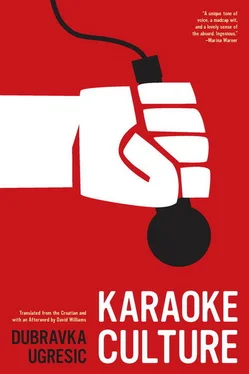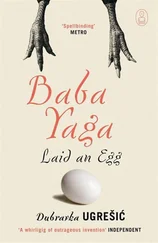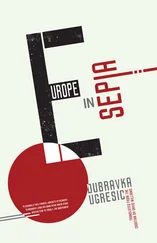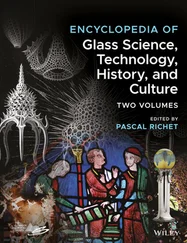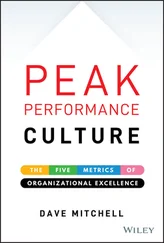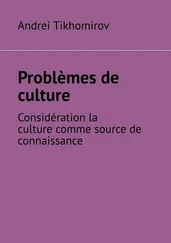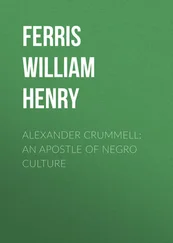Dubravka Ugresic - Karaoke Culture
Здесь есть возможность читать онлайн «Dubravka Ugresic - Karaoke Culture» весь текст электронной книги совершенно бесплатно (целиком полную версию без сокращений). В некоторых случаях можно слушать аудио, скачать через торрент в формате fb2 и присутствует краткое содержание. Год выпуска: 2011, Издательство: Open Letter, Жанр: Публицистика, на английском языке. Описание произведения, (предисловие) а так же отзывы посетителей доступны на портале библиотеки ЛибКат.
- Название:Karaoke Culture
- Автор:
- Издательство:Open Letter
- Жанр:
- Год:2011
- ISBN:нет данных
- Рейтинг книги:4 / 5. Голосов: 1
-
Избранное:Добавить в избранное
- Отзывы:
-
Ваша оценка:
- 80
- 1
- 2
- 3
- 4
- 5
Karaoke Culture: краткое содержание, описание и аннотация
Предлагаем к чтению аннотацию, описание, краткое содержание или предисловие (зависит от того, что написал сам автор книги «Karaoke Culture»). Если вы не нашли необходимую информацию о книге — напишите в комментариях, мы постараемся отыскать её.
Karaoke Culture — читать онлайн бесплатно полную книгу (весь текст) целиком
Ниже представлен текст книги, разбитый по страницам. Система сохранения места последней прочитанной страницы, позволяет с удобством читать онлайн бесплатно книгу «Karaoke Culture», без необходимости каждый раз заново искать на чём Вы остановились. Поставьте закладку, и сможете в любой момент перейти на страницу, на которой закончили чтение.
Интервал:
Закладка:
Dubravka Ugresic
Karaoke Culture
1.
And by the mid-afternoon he was again overcome with the desire to be somewhere else, someone else, someone else somewhere else.
— Jonathan Safran Foer, Everything Is Illuminated2.
“Help me. I had a dream last night. I was skipping through a meadow holding a picnic basket and the basket was marked ‘Options’. And then I saw there was a hole in the basket.”
“Mr. Kugelmass, the worst thing you could do is act out. You must simply express your feelings here, and together we’ll analyze them. You have been in treatment long enough to know there is no overnight cure. After all, I’m an analyst, not a magician.”
“Then perhaps what I need is a magician,” Kugelmass said, rising from his chair.
— Woody Allen, “The Kugelmass Episode”3.
. . But one day
The sun will stand where the heart once stood
And there will be no words in human speech
That a poem would renounce
Everyone will write poetry. .
— Branko Miljković, “Everyone Will Write Poetry”4.
We human beings hog the limelight on this new stage of democratized media. We are simultaneously its amateur writers, its amateur producers, its amateur technicians, and, yes, its amateur audience. Amateur hour has arrived, and the audience is now running the show.
— Andrew Keen, The Cult of the Amateur: How Today’s Internet Is Killing our Culture1. KARAOKE CULTURE
1. WHY KARAOKE, AND WHAT’S CULTURE GOT TO DO WITH IT?
It needs to be said upfront: I’m not a karaoke fan. This essay was not only conceived, but also half-finished, when it occurred to me to go and catch a bit of real karaoke. They say Casablanca is the most popular karaoke bar in Amsterdam. My companion and I, both neophytes, arrived at eight on the dot, as if we were going to the theatre and not a bar. Casablanca was empty. We took a walk down Zeedijk, a narrow street packed with bars whose barmen look like they spend all day at the gym and all night in the bar. Muscles and baggy eyelids — that pretty well describes our barman at Casablanca , to which we soon returned. On a little stage, two tall, slender young women were squawking a Dutch pop song into a couple of upright microphones. A concert featuring Dutch pop stars played on the bar’s TV screens but was drowned out by the evening’s young karaoke stars. The girls sang with more heart than the guys, and for a second I thought there must be an invisible policeman standing over them. The whole thing was a deaf collective caterwaul: deaf insofar as nobody actually listened to anyone. Amsterdam is definitely not the place for a karaoke initiation. I’m not sure why I even thought of going to see karaoke in Amsterdam — maybe because of the paradox that sometimes turns out to be true, that worlds open up where we least expect.
I was watching the film Lost in Translation for the third time and had stopped at the part where Bill Murray, with fatalistic forbearance, does his karaoke number. I sat down at the computer and opened YouTube. Trailing a few words behind and holding out little hope that I’d ever catch up, I gave singing “I Will Survive ” a go. It was an invigorating experience. I had a go at opera too. I managed to warble along with a popular aria from The Phantom of the Opera , but on Andrea Bocelli’s “Con Te Partirò” I could only get my tongue around the first line of the chorus. That song definitely has too many unpronounceable words.
I thought about buying the karaoke version of “Ti Voglio Tanto Bene” for $2.99, but gave it a pass. I didn’t buy Cantolopera either, which would have let me sing operatic arias accompanied by a whole orchestra. I didn’t even buy a teach-yourself pack, a virtual coach for classical singers . But when I saw an Internet ad for a karaoke program that promised to recreate the joys, sorrows, ecstasy and anguish of opera— while I was having my morning shower — I very nearly caved. It’s not that I like warbling in the shower; it’s just that I’m a sucker for emotionally charged ads with rich vocabularies. And I almost forgot, I also listened to a few karaoke singers on a site called Singer’s Showcase. My favorite was the sad Mr. Sandy and his bear-like growl through “Georgia On My Mind.”
What is karaoke in actual fact? Karaoke (Japanese for “ emptyorchestra”) is entertainment for people who would like to be Madonna or Sinatra. The karaoke machine was invented in the early seventies by the Japanese musician Daisuke Inoue — who forgot to patent his invention, and so others cashed in. A few years ago Inoue apparently won the alternative Nobel Peace Prize (the Ig Nobel), awarded by The Annals of Improbable Research . They praised him for “providing an entirely new way for people to learn to tolerate each other.”
Cultural critics are people who are prepared to see more in the craze for tattoos than just a passing fashion fad. I’m a member of this dubious guild. In karaoke I’m ready to see more than just desperate squawking to the backing track of “I Will Survive.” Karaoke supports less the democratic idea that everyone can have a shot if they want one and more the democratic practice that everyone wants a shot if there’s one on offer. The inventor of karaoke, Daisuke Inoue, is a humble man, most proud of having helped the Japanese, emotionally reticent as they are said to be, change for the better. As Pico Iyer wrote: “As much as Mao Zedong or Mohandas Gandhi changed Asian days, Inoue transformed its nights.”[1]
What is the attraction of karaoke, which having first taken off in Japan (apparently it’s still going strong) then made its way around the world? I suspect it is firstly its simplicity and stupidity, and secondly, the ambivalent position of the participant. Singing a song that someone else made famous, the amateur publicly declares his or her love for his or her idol (Sinatra or Madonna), while the inevitably flaky performance simultaneously devalues this same idol. This theft of the star’s aura, or inadvertent subversion of a hierarchy of values, remains in the sphere of the innocent, empowering, and transformative. It’s just a bit of fun. The performer is anonymous, and most often remains so.
Letting one’s imagination run wild, it’s not difficult to imagine various other forms of karaoke-like fun. Someone with a bit of cash, for example, might hit upon the idea of hiring the ballet ensemble of the Bolshoi Theatre, commission a performance of Swan Lake, and insert his wife, mother-in-law, or even himself in the main dance section. The variants are endless. But the bottom line, it seems, is anonymity. Why? If we signed our first and last names, our gesture would have a completely different message. Our squawking along to “Mamma Mia” wouldn’t be interpreted as a submissive imitation of the original, but as subversion, homage, parody, and so forth. An authorial gesture, as opposed to an anonymous one, sends a rather different message out into the world — Marcel Duchamp painting a mustache and beard on the Mona Lisa or Andy Warhol and his giant celebrity portraits come to mind. Were it not for an authorial signature, and general agreement that this signature be respected, much contemporary art — the product of an inseparable symbiosis between someone else’s original model and an interventionist authorial gesture — could easily be filed under less flattering labels such as symbiotic art, appropriation art, or karaoke art. Because karaoke is an activity that belongs to those who don’t sign their names — or don’t do so for now. For the time being, karaoke-people stick within their communities, their fandoms.
Читать дальшеИнтервал:
Закладка:
Похожие книги на «Karaoke Culture»
Представляем Вашему вниманию похожие книги на «Karaoke Culture» списком для выбора. Мы отобрали схожую по названию и смыслу литературу в надежде предоставить читателям больше вариантов отыскать новые, интересные, ещё непрочитанные произведения.
Обсуждение, отзывы о книге «Karaoke Culture» и просто собственные мнения читателей. Оставьте ваши комментарии, напишите, что Вы думаете о произведении, его смысле или главных героях. Укажите что конкретно понравилось, а что нет, и почему Вы так считаете.
